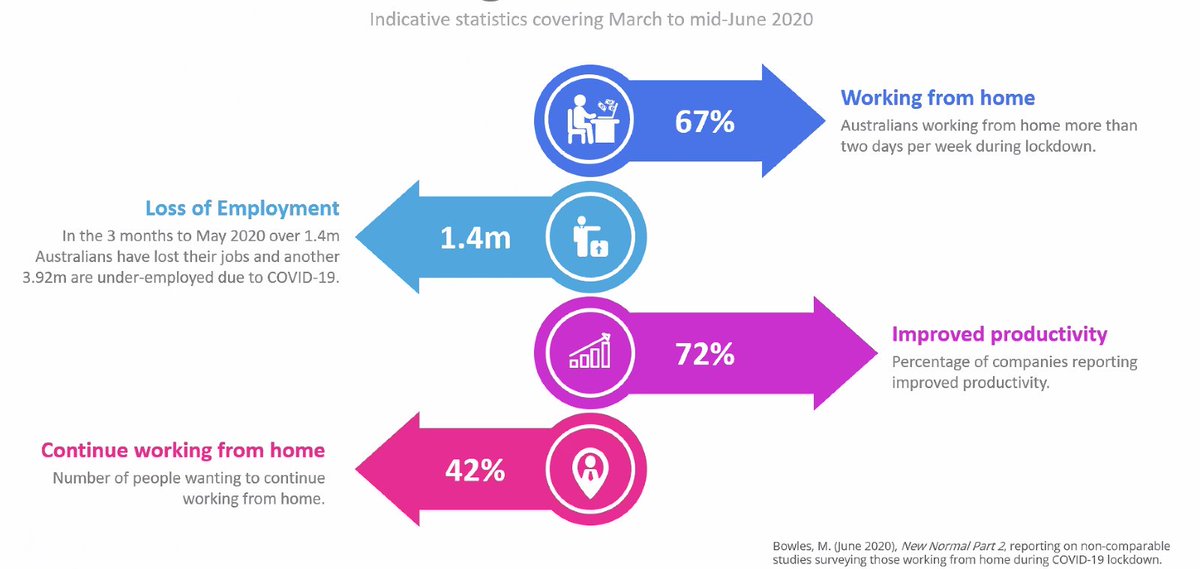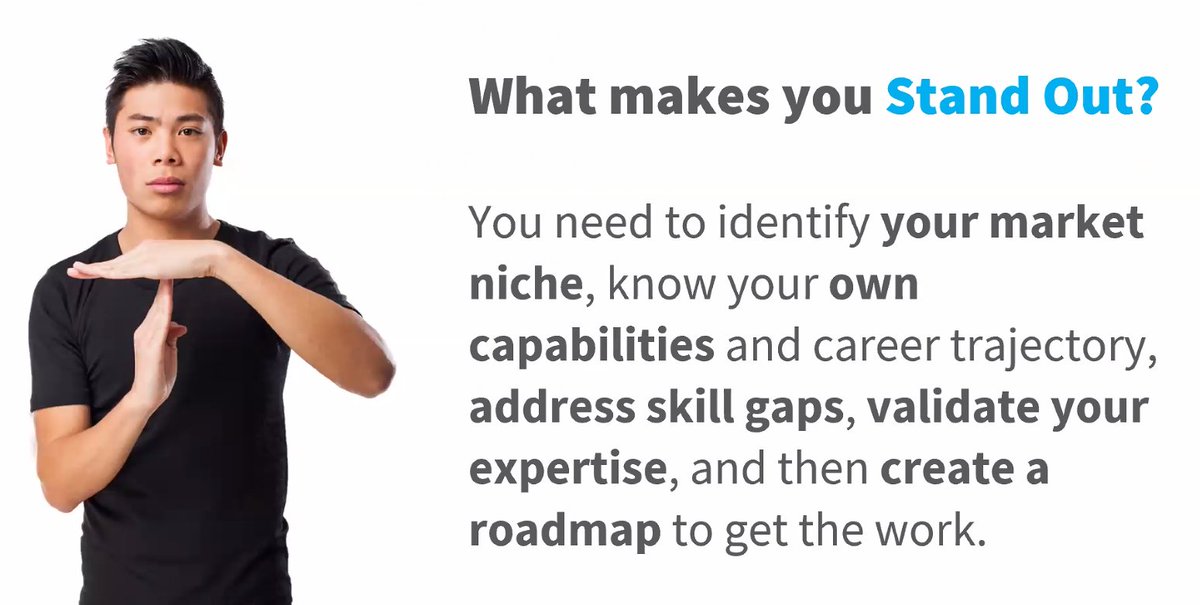
I've been asked 3 times this week by women entering the consulting space how to charge for consultancy services. A thread.
How do you decide what to charge? First, you're not doing the client a favour. You're helping them solve a problem. Your charge is partly based on what the client expects to pay for solving that problem. (You can always ask if they have a budget in mind. Most clients do.)
But you'll also need a personal rate, based on what you need to earn. Begin by researching what the *average* day-rate is for your sector and client location. e.g. average rates for an attorney in New York are $100-$300/hour. Next you need to refine *your* target / average rate.
Start by deciding what your target annual salary needs to be. Include pension contributions and work-related costs. There are around 250-260 working days in a year (because weekends / public holidays). Divide your target salary by 250.
This helps you find your target / average day rate. Let's say your desired annual salary is $120K, you want to put $20K into your pension each year, and you expect to have $40K in costs. That's 160000/250 = $667/day.
You're unlikely to earn your target day rate every single day. A percentage of your time - could be >50% - will go into finding business. So double the figure: $1334. Divide by 7 = $190/hour. Some jobs will pay more / less, but that's a target average for 160K income.
NB A rare and valuable skill you can support others to acquire is worth more. A common skill, or a skill people can acquire online, is worth less. Also, some gigs pay well but come up more rarely. Hence, change managers have to charge more than social media managers.
NB2 I observe women consistently charge less than men. Laydeez: research what male providers equivalent to you in experience & personal brand value are charging.
Next: ADMIN. Clients often want meetings before & after the actual work. Half-day & shorter sessions may involve as much admin as full day/multi-day bookings. Treat admin as a standalone item. During contract negotiations, agree a charge for pre/post-job hours.
Next: 'inclusions and exclusions'. What's included? What isn't? Common stumbles include access to IP, expenses they'll reimburse, insurance, whether they'll deduct tax, etc. Discuss and include 'inclusions / exclusions' in your quote for services.
Next: QUOTE. Once the scope of work & number of days / hours is agreed, create a written quote. They've come to you for a service, so they're expecting to pay for it. Your plumber doesn't mess around with giving you a quote; they say ok - to replace your sink will cost X.
Remember, your quote will be based on a) what the client wants to pay to solve this problem, and b) a target you need to be paid to deliver a solution. Look for the comfortable middle and agree a price. Create an itemised written quote so it's clear why it costs what it does.
Include a cancellation policy in your quote. How much notice would you *realistically* need to find alternative work if this gig was cancelled or postponed? If the client is happy with your quote, ask for cancellation terms to be included in contract and / or statement of work.
Don't start work until you have confirmation of the job. If you're awaiting a contract, get it signed off before you start.
Develop a reputation for being: kind, open, honest, clear, trustworthy, high quality, and fairly priced, as well as being good at what you do. As my fellow consulting buddy @sparkyannc pithily summarises: "don't be a jerk". That applies to yourself as well as to your clients.
Why? Because you are both manager & employee. Be great to work for! Attend training for the self-employed. Get good at Excel. Have a filing system for income & expenses (and scan receipts!). Constantly improve not just what you do as a business, but how you run your business.
If you have a bad experience, take responsibility. What were the key moments where you could have acted to avoid it? What would 'good practice' look like next time? Build that into how you run your business. (That's why I have a cancellation policy.)
Time with family and friends is part of being a healthy, happy human. Don't expect your most important employee - you - to work seven days a week, or they'll get another job and your business will collapse.
There are many ways of working less for more money. First, say no to jobs that won't pay you enough to live on. Second, look for recurrent gigs with one client, so you spend less time on hustle. Third, work efficiently. This blog will help.
bidsketch.com/blog/save-time…
bidsketch.com/blog/save-time…
Lastly, get a good accountant. Someone whose job is to keep an eye on how well your business is doing, year-on-year, and can help with things like budgets, forward planning, and templates. Accountants' fees are tax-deductible.
I hope this is helpful. Obviously all of us in the self-employed space are working it out as we go along. Any tips I've missed? Anything I've got fundamentally wrong? Replies welcome. Happy consulting. x / ends
As this thread is picking up traction, I want to give thanks to @nishkotak. We used to run into each other on the train from Cambridge to London. I taught him basic Twitter, and he taught me basic consultancy charging. Bless you Nish.
One more addendum. As @PeterBale observes, 250 working days a year assumes you'll be earning on all those days at about the same rate. Which implies relatively similar products, or products that are charged for similarly. You might want to diversify your 'products'. 1/8
2/8 You might look for passive income sources. Once set up, they earn income without you doing much eg 1) online courses (altho it's a saturated market) 2) investments like a rental property. You can also bring biz costs down by having off-the-shelf as well as bespoke products.
3/8 Also, on rates: I have a friend who does change management. He has a monthly rate, not an hourly rate. Anyway - I will end with a story that changed how I think about my business, and about the journalism sector I work in.
4/8 I was sat under a tree at the beach 3 years ago, worrying. I had one primary product I was and still am passionate about: face-to-face workshops in developing countries. But it wasn't completely covering my income needs. A woman arrived & set up a yoga mat & sandwich board.
5/8 20 people turned up, did a lovely 1-hour yoga class with her in the morning sun. They paid her $20 each. She packed up her sandwich board & mat and went SWIMMING at the BEACH. $400 x 1 hour x 250 working days = $100,000 which is an ok salary in Australia. Bloody genius.
6/8 The woman wasn't just good at yoga. She was good at product design. She had created a product for a keen group of customers. Bonus points for low time/capital costs, bc big profit margin. I thought, if she can do that for yoga, it must be feasible for journalism.
7/8 Since then I've thought a lot about products that generate enough income to cover the cost of quality journalism. Our products & businesses will evolve, & may look different to what we expect. That's HCD - and there's a free @IDEOorg field guide here ideo.org/tools
8/8 So to a wee plug: in September I'm running a Revenue Diversification Lab for @fathmco. It's not expensive - £1250 for 5 sessions - and it's for media people who want to test a new revenue stream over 2 months in a collective learning environment. fathm.co/media-labs/rev… /ENDS
• • •
Missing some Tweet in this thread? You can try to
force a refresh











